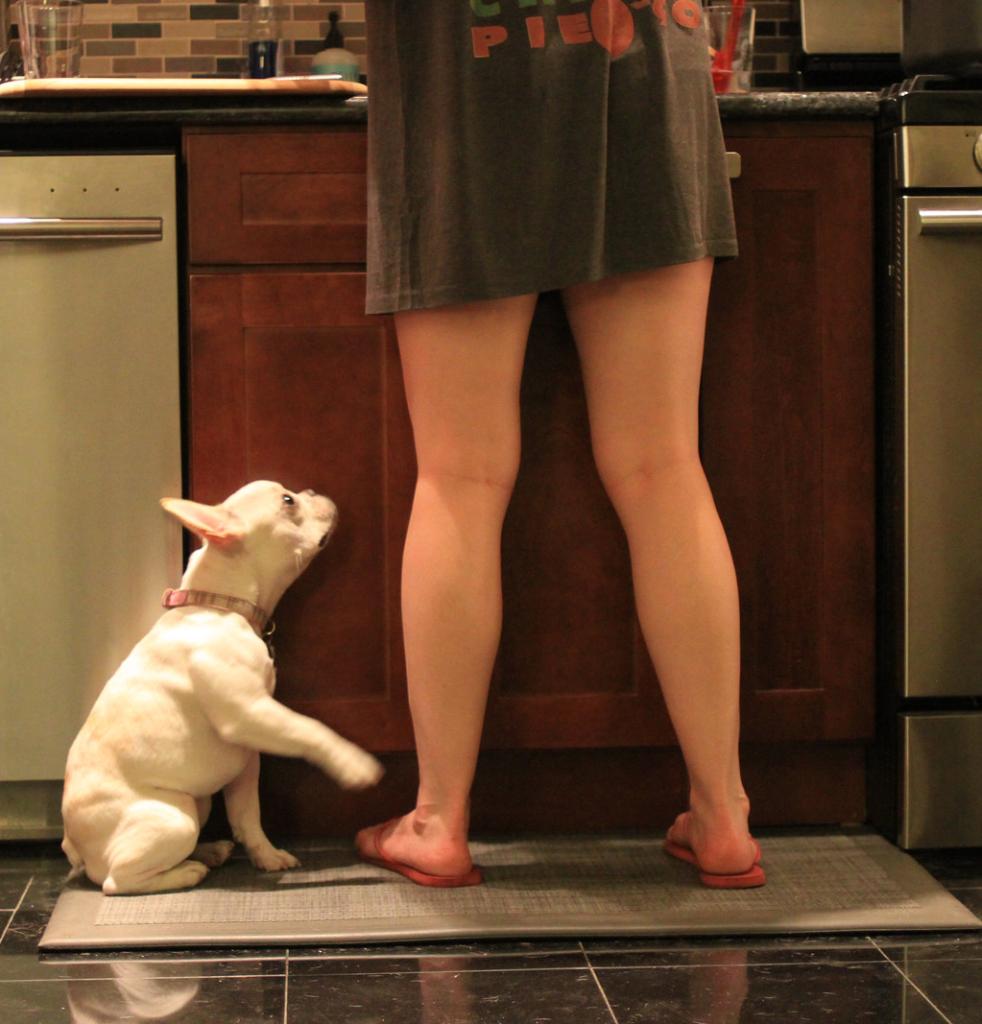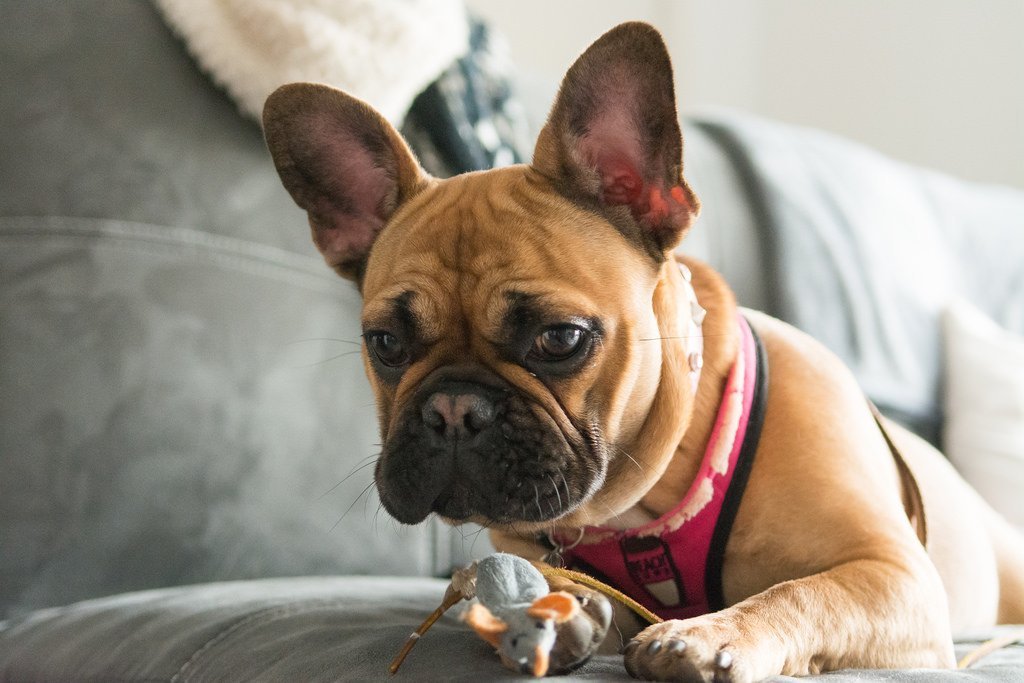The life expectancy of dogs of this breed with proper care is 10-13 years. Some individuals reach the age of 14 years or more, but this is rare. In general, French Bulldogs are reasonably healthy, although there are several common diseases.
Skin – if left untreated, dermatitis can develop in the skin folds of the muzzle or between the fingers.
Eyes – dogs are prone to conjunctivitis, blepharitis, glaucoma, cataracts. Sometimes there is such an anomaly as the third eyelid.
Back – Many pets suffer from problems with intervertebral discs. This is due to the fact that the breed was bred with the help of the smallest representatives of the English Bulldogs, which can hardly be called a standard of health.

Reproductive system – anatomical features complicate natural insemination and childbirth. Most puppies are born by caesarean section.
Thermoregulation – a flattened muzzle negatively affects heat transfer. Dogs are equally sensitive to heat and cold. Some airlines do not allow these animals to be transported because they often die in transit.
Breathing – even when awake, French bulldogs make a slight grunt, but at night it can turn into a powerful snore. Obese animals are especially susceptible to this.
Allergies – most often, pets are prone to food reactions.
Care and maintenance
1-2 times a week comb your pet with a brush for short-haired animals or a special mitt. This will help to make a useful massage, remove dead hair, street dust.
It is enough to bathe the animal with a special shampoo several times a year. After water procedures, dry the body well with a towel, you can use a hairdryer if the dog is not afraid of it.
You need to brush your teeth with a specialized paste about 1 time per week. This procedure can be replaced by buying a French bulldog special bones that help remove plaque and tartar.
Regularly monitor the ears – due to their anatomical structure, sulfur accumulates little, but dirt and insects get in easily. Clean them once a week with a cotton swab or swab. Remember that there should be no liquid in the ears, a sharp unpleasant odor.
It is enough to cut the nails once a month, smoothing the tips with a nail file. Carry out the procedure carefully so as not to hook the capillaries.
Keep an eye on the skin folds on the face – particles of food and pollution often get there. It is necessary to wipe them once a day with a soft, damp cloth, to prevent the formation of diaper rash.
Bulldogs of a light color have a small amount of discharge from the eyes. This is normal, but it is advisable to carefully remove all contamination. If there is increased tearing, clouding of the eyes, contact your veterinarian immediately – an infection or allergy is possible.
The French Bulldog breed is not demanding on the conditions of physical activity – in a spacious apartment, a dog can live with little or no walking. This greatly simplifies its maintenance in urban conditions. But the less the pet moves, the more carefully the menu should be drawn up.

Nutrition Features
French Bulldogs require careful diet selection, as they are prone to gastrointestinal problems, food allergies, and obesity. Choose quality ready-made dry food only holistic and super-premium. Buy a bowl with a height-adjustable vertical stand for your pet, provide access at the level of the dog’s chest. This will make drinking and eating more convenient. Change the water every day, remove the leftover food immediately.
If you are planning natural feeding, stick to the list of recommended products:
- raw lean meat, cut into pieces;
- boiled sea fish without bones;
- cereals;
- seasonal vegetables and fruits (primarily green);
- chicken eggs;
- dairy products (causes diarrhea in some dogs).
Completely exclude fatty meat, river fish, smoked meats, sweets, bakery products, gas-forming foods (beans, cabbage) from the dog’s diet. Puppies up to 2 months are fed 6 times a day, at 3 months – 5 times a day, at 4-7 months – 4 times, at 8-12 months – 3 times. In a year, you can switch to two meals a day. Control your portion sizes as French Bulldogs tend to overeat. Do not give very hot or cold food/drinks.